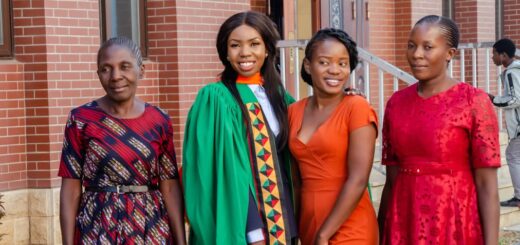Zambian city dwellers look to nature to stay sane
Notice: Undefined index: catFilterList in /home/zambi/public_html/wp-content/plugins/wp-likes/api.php on line 243
Feature by Lilian Hannah Banda

Lilian Hannah Banda
CORONAVIRUS disease (COVID-19) is an infectious disease caused by a newly discovered coronavirus, has not only globally disrupted both social and economic life but unsettled many people mentally.
The COVID-19 pandemic and the resulting economic recession have negatively affected many people’s mental health and created new barriers for people already suffering from mental illness and substance use disorders.
During the pandemic, about 4 in 10 adults in the U.S. have reported symptoms of anxiety or depressive disorder, a share that has been largely consistent, up from one in ten adults who reported these symptoms from January to June 2019/
A Kaiser Family Foundation (KFF) Health Tracking Poll from July 2020 found that many adults are reporting specific negative impacts on their mental health and well-being, such as difficulty sleeping (36%) or eating (32%), increases in alcohol consumption or substance use (12%), and worsening chronic conditions (12%), due to worry and stress over the coronavirus.
As the pandemic wears on, ongoing and necessary public health measures expose many people to experiencing situations linked to poor mental health outcomes, such as isolation and job loss.
However, in Zambia, only a few can afford the services of a professional mental health expert, while the rest are left to make do with whatever coping mechanism are within their individual or collective reach.
It is for this reason that a significant number of residents of Lusaka, Zambia’s capital city are trekking to Chinyunyu hot springs, in Rufunsa district, a two hours drive from the City of Lusaka to de-stress, that is to release bodily or mental tension.
Chinyunyu hot springs is a tourist spot situated in Lusaka rural that often attracts both local and international visitors.
Locals seek out the place because of its abundant water which many claim has many health benefits and can be used to bring order in one’s life and increase health tourism.
Mental Health challenges can help break the medical tourism jinx which refers to people traveling abroad from developing countries to obtain medical treatment in wealthier societies.
As stated above, this usually referred to those who travel from less-developed countries to major medical centers in highly developed countries for treatment unavailable at home.
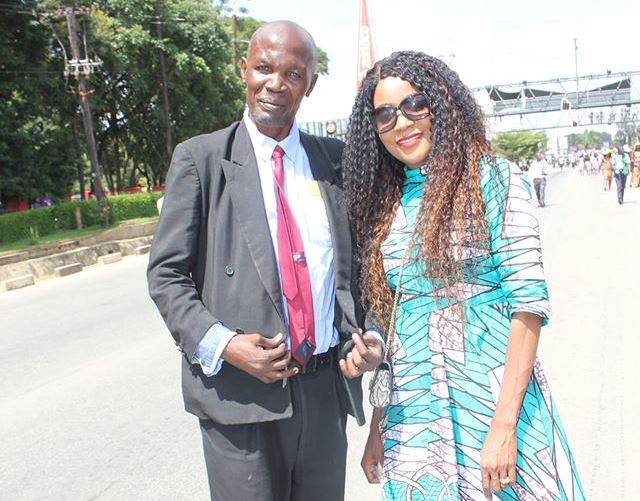
Zambia National Broadcasting Corporation (ZNBC) employee Ellen Mutinta Hambuba with Derrick Sinjela during an International Women’s Day (IWD) commemoration on Monday 9th March 2020 in Lusaka, Zambia
“Medical tourism has more often than not referred to people traveling abroad to obtain medical treatment. People unable to find appropriate cure or care in Africa, a less-developed continent tend to seek major medical treatment abroad. Covid 19 offers an opportunity for Zambia to market her mental health capability through popularizing centers Chinyunyu hot springs as a mental health treatment destination,” notes Zambia Developmental Media Alliance (ZADEMA) executive president, Derrick Sinjela.

National Heritage Conservation Commission with former First Republican President, Dr. Kenneth David Buchizya Kaunda
A visit to this National Heritage Conservation Commission (NHCC) site confirms the tourist spot as a hive of activity throughout the week and particularly busy during weekends and public holidays.
Those found at the site indicated that water from the hot springs and the serene surroundings along with fresh air had a calming effect on the mind, largely the main reason prompting interest in seeking refuge and healing.
Nebart Mumba, Lusaka resident who claimed to have been at the verge of a life-threatening nervous breakdown said taking a hot bath at Chinyunyu hot springs helped him think clearly.
“The medical tourism trip to Chinyunyu hot springs was refreshing and worthwhile,” Mumba said.
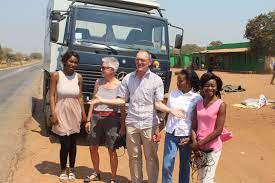
Chinyunyu hot springs
Another Lusaka resident, Julian Mwango said visiting the site helped her overcome depression from loss of a job resulting from economic challenges attributed to COVID-19 ramifications.
According to Lastone Gomah, a Zion Christian Church leader, Chinyunyu hot springs has for a long time provided both spiritual and physical relief to individuals in dire stress looking to find solutions to difficult life situations, compounded with the advent of COVID-19.
“To those that are spiritual, the water from the springs helps with ridding bad omens and bringing about success in different areas of life. The water has physical health benefits in that one can take a hot bath, a few meters from the springs and feel rejuvenated,” noted a clearly satisfied Gomah.

Vice President Inonge Mutukwa-Wina (left), President Edgar Chagwa Lungu (centre) and Water Development, Sanitation and Environmental Protection Minister (WDSEPM) Dr. Jonas Janina Chanda at State House in Lusaka
Clara Nanja an ecologist said bonding with nature provide the much-needed mental relief more so during this period of the COVID-19 pandemic, when people are under a lot of stress.
“This is the best time to bond with nature. Bonding with nature helps to release tension and comforts one to reflect and focus on things that truly matter,” Nanja said.
As an environmentalist, Nanja restated the importance of more people being encouraged to visit remote and rural areas where they can interact with and enjoy nature and thus release the tension and stress, accumulating as a consequence of being confined in one space for longer periods of time.
“It is a very small price to pay compared to addressing serious mental issues,” advised Nanja.
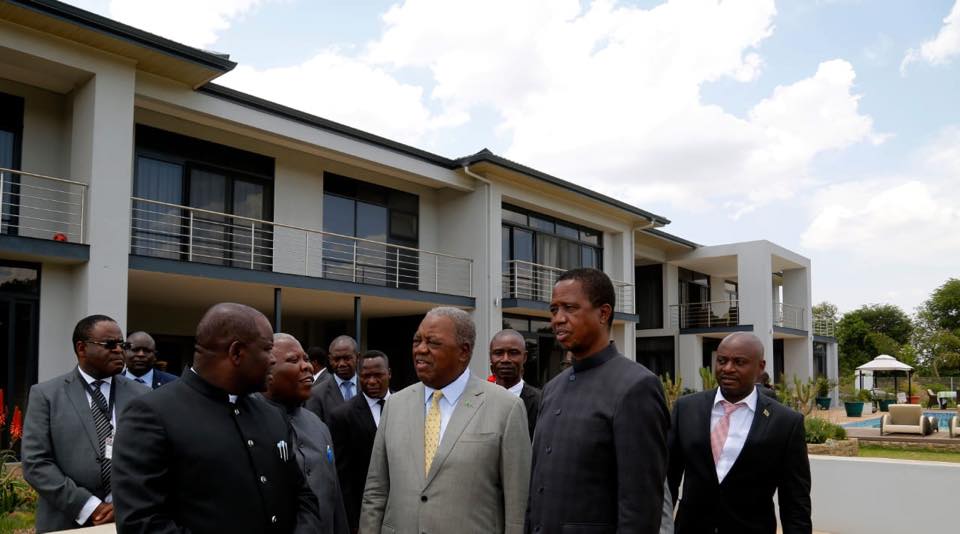
Ronald Kaoma Chitotela, Freedom Chomba Sikazwe with former Fourth Republican President Rupiah Bwezani Banda (RB) and President Edgar Chagwa Lungu (ECL)
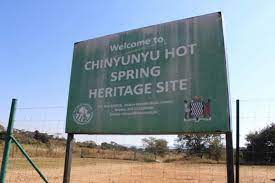
Chinyunyu hot springs in Zambia


